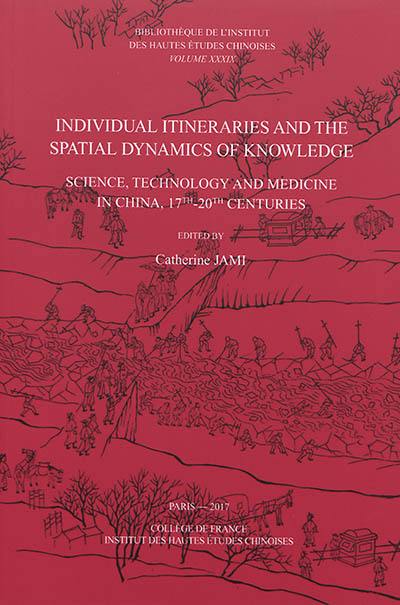
Fiche technique
Format : Broché
Nb de pages : X-404 pages
Poids : 800 g
Dimensions : 17cm X 25cm
ISBN : 978-2-85757-077-6
EAN : 9782857570776
Individual itineraries and the spatial dynamics of knowledge
science, technology and medicine in China, 17th-20th centuries
Quatrième de couverture
Quel est l'impact de la mobilité géographique des personnes sur la dynamique spatiale des savoirs dans les domaines des sciences, des techniques et de la médecine ? Cette question est singulièrement pertinente pour la Chine impériale tardive, sur laquelle portent les études rassemblées dans le présent volume. La fonction publique impériale induisait un mode spécifique de mobilité des fonctionnaires, mais aussi des lettrés employés par ceux-ci à titre privé. La question peut aussi être étudiée pour les artisans, les praticiens médicaux, et les empereurs eux-mêmes. À ces groupes doivent être ajoutés les acteurs de la mondialisation des savoirs pendant cette période, notamment les missionnaires catholiques qui furent les premiers intermédiaires entre la Chine et l'Europe à l'époque moderne, les médecins coloniaux français et les étudiants chinois de retour de l'étranger pendant les dernières décennies de l'empire.
Individual itineraries and the spatial dynamics of knowledge science, technology and medicine in China, 17th-20th centuries
What is the impact of individuals' geographic mobility on the spatial dynamics of knowledge in the fields of science, technology and medicine ? This question is of peculiar relevance for late imperial China, the focus of the contributions gathered in the present volume. The imperial civil service dictated a specific mode of mobility for civil servants themselves, and thus for the scholars privately employed by those officials. The question can also fruitfully be studied for craftsmen, medical practitioners, and even emperors. To these groups should be added the actors of the globalization of knowledge during this period : these include Catholic missionaries who were the first mediators between China and Europe in the early modern period, French colonial doctors, and the Chinese students who returned from abroad during the last decades of the empire.





